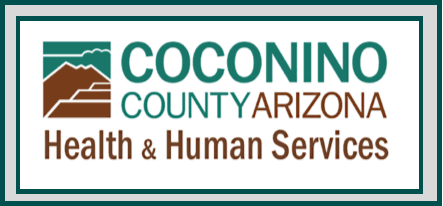 COCONINO COUNTY — Coconino County Health and Human Services (CCHHS) recommends taking precautions to protect yourself and your family from illnesses transmitted by insects and animals.
COCONINO COUNTY — Coconino County Health and Human Services (CCHHS) recommends taking precautions to protect yourself and your family from illnesses transmitted by insects and animals.
Summer in Northern Arizona can bring people in contact with mosquitoes, ticks, fleas, bats, skunks, squirrels, and mice. While these insects and animals are important to the Northern Arizona ecosystem, they can occasionally carry disease.
Prevent bites from fleas, ticks, and mosquitoes that can carry diseases like plague, tickborne relapsing fever, West Nile virus, and Zika virus: ▪ Wear shoes and socks, long pants and a long-sleeved shirt when outdoors.
▪ Use insect repellent with active ingredients such as DEET.
▪ Prevent pets from roaming loose. Pets can pick up the infected fleas of wild animals, and then pass fleas on to their human owners.
▪ Vaccinate your pets. Arizona State law requires all dogs to be properly vaccinated against rabies. CCHHS also recommends that cats be vaccinated against rabies.
▪ De-flea pets routinely.
▪ Reduce rodent habitats around your home, workplace, and recreational areas. Remove brush, rock piles, junk, cluttered firewood, and possible rodent food supplies, such as pet and wild animal food.
▪ Remove or empty water-holding containers outside your home, such as flowerpots, buckets and birdbaths, to reduce breeding areas for disease-carrying mosquitoes.
▪ Keep insects out of your home by using window and door screens.
Outdoor recreation, such as camping, and cleaning out storage areas can pose a risk for hantavirus exposure. Precautions should be taken including:
▪ Campers should not pitch tents or place sleeping bags in close proximity to rodent nests, burrows, or in areas of heavy rodent activity.
▪ Before use, properly clean tents and other camping gear that have been stored where rodents may have had access.
▪ If possible, do not sleep on the bare ground and zip tents closed to keep animals out.
▪ Wear rubber or plastic gloves at all times while cleaning cabins, garages and areas that have been closed up for extended periods.
▪ Before cleaning, open all doors and windows for at least 30 minutes.
Rabies and plague can be transmitted to humans by direct contact with an infected animal. Reduce risk of exposure by following these guidelines: ▪ Do not handle or feed any wild animals, this includes dead and wounded animals. ▪ Report unusual wildlife behavior to the CCHHS Animal Management Office at 928-679-8756.
In case of illness, contact your healthcare provider. Some diseases have less serious effects if treated early.
In addition to preventing diseases caused by insects and animals, it is important to protect yourself from potentially dangerous sun exposure. Northern Arizona sun is intense and can bring other risks that go beyond sunburn, including heat related illnesses.
▪ Wear sunscreen in addition to clothes covering your arms, legs and a hat.
▪ Stay hydrated.
For more information visit www.coconino.az.gov/health or call Coconino County Health and Human Services at 928-679-7272, toll-free 1-877-679-7272.
